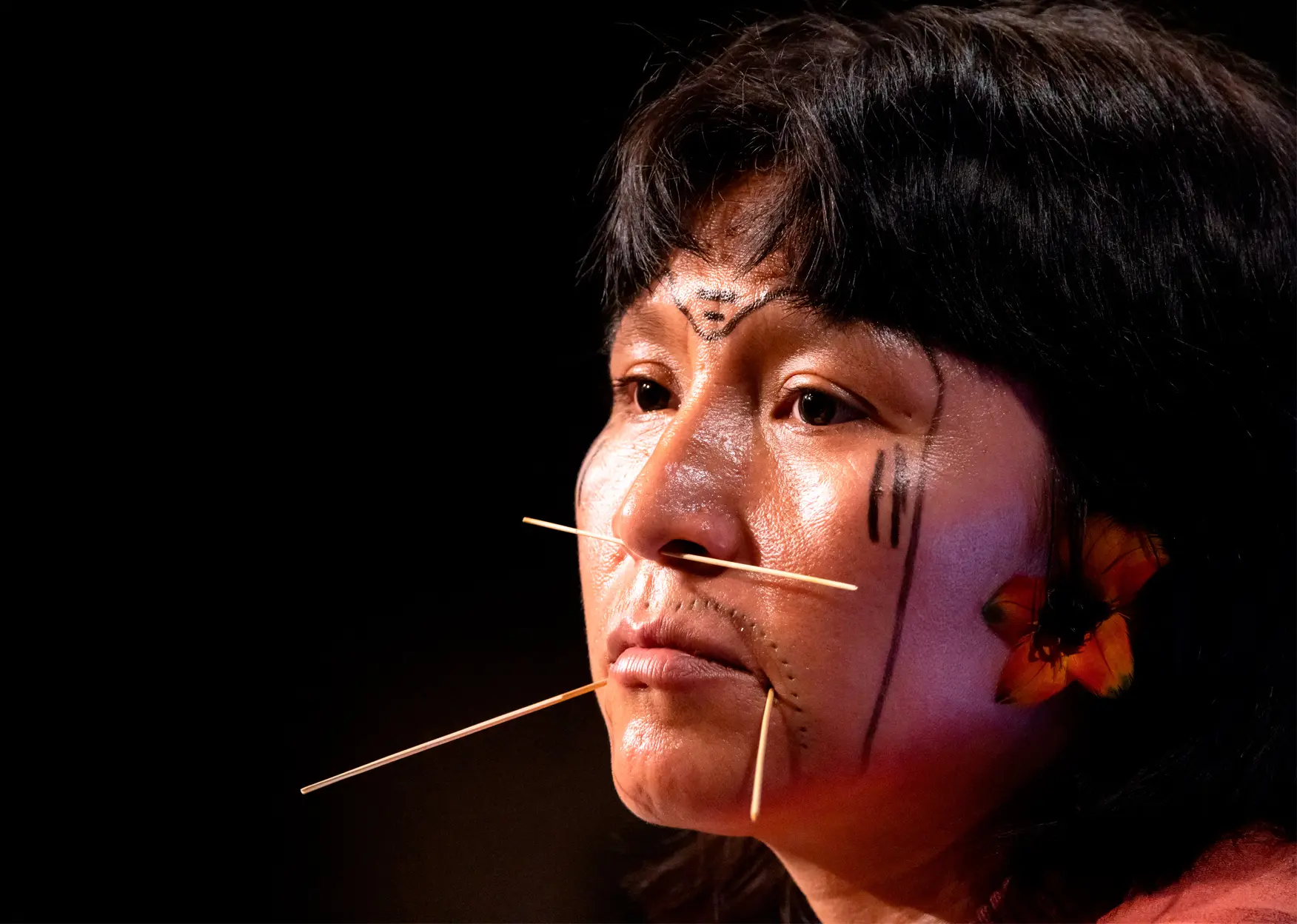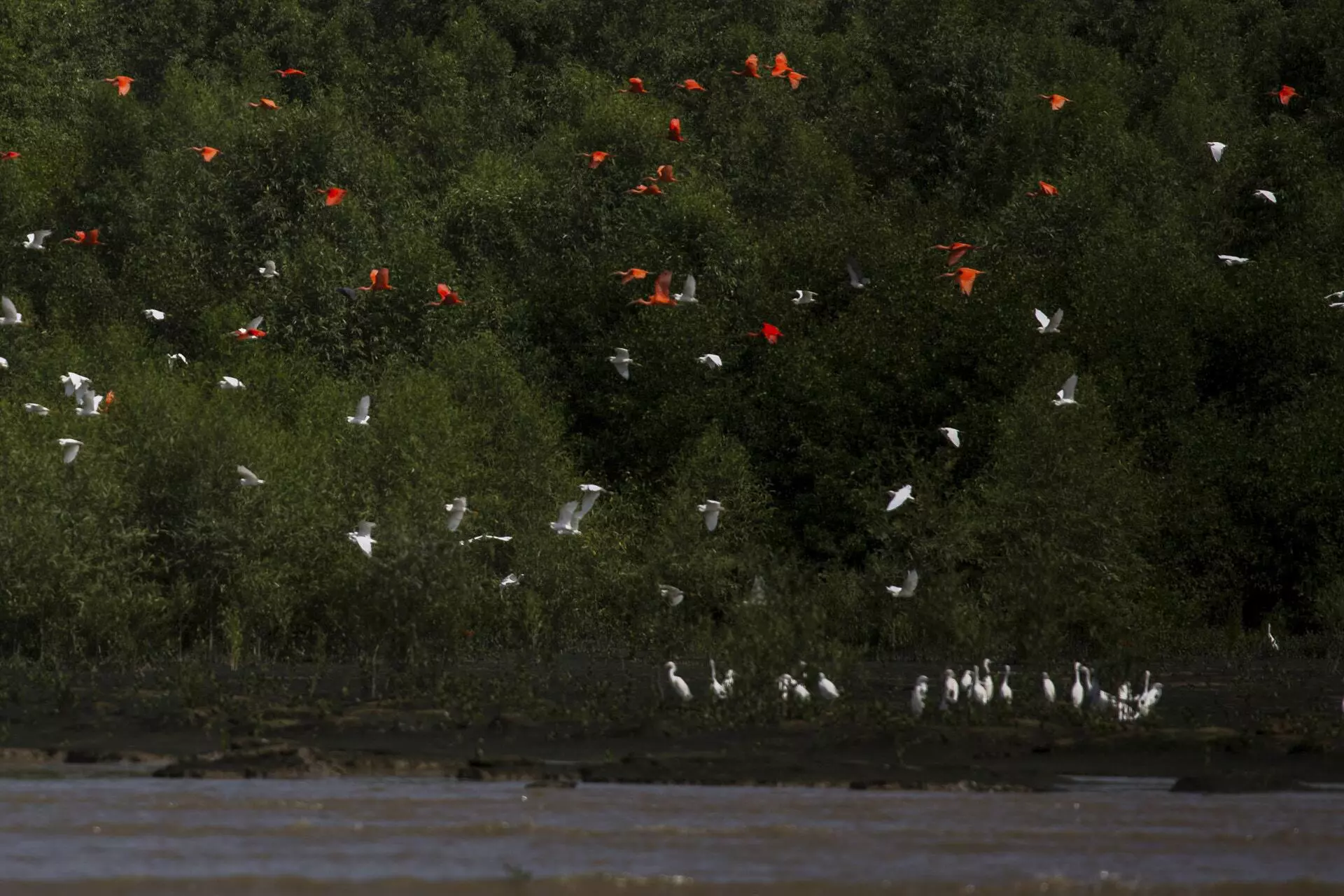The head of Brazil’s Department of Mines and Energy, Alexandre Silveira, a member of the Social Democratic Party of Minas Gerais, manufactured a “legal dispute” to shirk a responsible study of the environmental and economic impacts of opening a new front for oil exploration along the Amazonian coast. This is the purpose of the Attorney-General’s Office opinion that Silveira requested and which was released on Tuesday, August 22. With this, the department leader is trying to bypass IBAMA, Brazil’s environmental regulator, in the licensing process for Petrobras Block 59, in the Foz do Amazonas region, and obtain authorization for drilling through “arbitration proceedings.” Marina Silva, the head of the Department of Environment and Climate Change, rejected the move: “Technical questions are not arbitrated,” she said in the Senate this Wednesday, August 23.
The Attorney-General’s report looks at the argument made by IBAMA and Marina’s department about the importance of performing a Sedimentary Area Environmental Study of Brazil’s entire Equatorial Margin, as the shoreline running from Rio Grande do Norte to Amapá is called, before a new frontier of oil exploration is opened there. The Study is an instrument used by the Environment and Mines and Energy departments to provide an assessment of the cumulative impact of the entire fossil fuel chain in an environmentally sensitive area. It is used based on the principle of responsibility and the precautionary principle.
Forty-one blocks have currently been auctioned off in the Equatorial Margin, nine of which are in the Foz do Amazonas area. A drilling license for one block could open a precedent for the rest. The opinion from the Attorney-General’s Office affirms that the Sedimentary Area Environmental Study is not a precondition for licensing – but IBAMA and the Department of Environment never claimed that it was. What they are seeking is a technical solution so that a much more informed decision can be made on a vital public policy, with impacts on the planet’s largest rainforest, eliminating the “chance of providing safe-conduct for uncertainty,” as IBAMA states in its opinion recommending denial of the drilling license. By turning to the Attorney-General’s Office, Silveira has rebuffed a technical approach, a move supported by other sectors of the government, with the apparent approval of President Luiz Inácio Lula da Silva – who in early August said that Amapá could “keep on dreaming” about oil exploration along its coast.
Licensing of Block 59 began ten years ago and drilling of nearby blocks had already been denied by IBAMA in 2018. The delay is justified. This is a shoreline filled with fish and mangroves – an ecosystem highly sensitive to oil spills – and one where endangered species live. Moreover, little study has been done on the dynamics of the region’s ocean currents, which are three times stronger than the currents off of Brazil’s southeastern coast.
Because of this uncertainty, IBAMA posed the possibility of carrying out the Sedimentary Area Environmental Study, for a responsible decision to be made. In a report dated January 31, the agency’s technical staff wrote that “we are without legal instruments to justify the recommendation not to issue environmental licenses for exploratory drilling until a strategic environmental study is done.” However, in the absence of this study, they say that “statements in favor of the environmental feasibility of exploratory drilling projects are made weak and do not guarantee” that the subsequent stages, of any oil production, “are guaranteed to be environmentally feasible.”
Nevertheless, the Attorney-General’s opinion undersigns Silveira’s position by mentioning the supposed “legal dispute” he raises. He says that “in the factual plane” IBAMA has made carrying out the Study a condition for licensing. “It is impossible to say that it is not, even if by crosswise means, ‘requiring’ that a Sedimentary Area Environmental Study be done in the scope of environmental licensing,” the 22-page opinion says. In other words, the Attorney-General’s Office is backing Silveira up by treating the case as if it boiled down to a debate on form – and not on content.
Based on the opinion, the Jorge Messias-led department said in a statement that it considers the matter of the Sedimentary Area Environmental Study to be resolved. The Attorney-General’s Office then asked that a process be opened with the Federal Government’s Mediation and Arbitration Chamber to resolve the other points that led to IBAMA denying the license – the impact on the region’s Indigenous territories in the Oiapoque region and inconsistencies in Petrobras’ plan to protect wildlife. An agency operating under the Attorney-General’s Office, the Chamber handles inter-government litigation and litigation between the government and third parties. Yet before this process can take place, all parties need to be in agreement, and department head Marina Silva has said she will continue resisting. “I can’t put ANVISA [Brazil’s drug and health regulator] in arbitration talks to use a political, administrative ruling to decide whether a drug is toxic. The same goes for IBAMA decisions,” she told the Senate, using an example.
Fact check: Plínio Lopes
Spell check (Portuguese): Elvira Gago
Translation into Spanish: Meritxell Almarza
English translation: Sarah J. Johnson
Photography editing: Lela Beltrão
Page editing: Viviane Zandonadi





